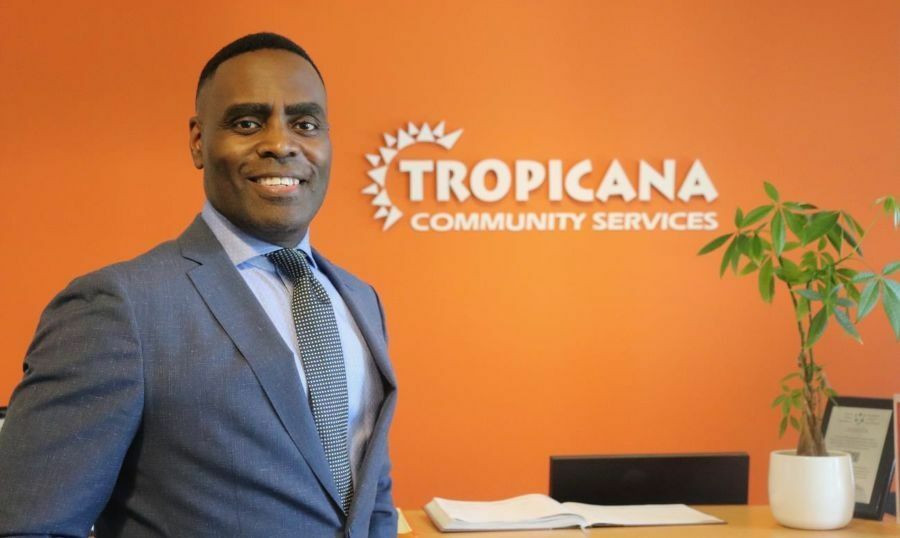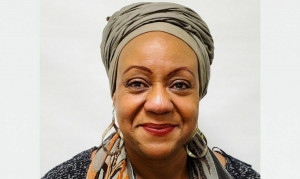For those who do not know what Tropicana is or what it does, could you speak talk a bit about the services offered?
Raymund Guiste: Tropicana Community Services is a multiple services not-for-profit charity based here in the Greater Toronto Area. We have four sites out of which we run 40 programs for children, youth, young adults, and seniors. We have two daycares in South Scarborough where we provide all-day daycare and before and aftercare for children ages from Toddler to Grade eight.
We also run an employment centre in North York where we deliver Employment Ontario programs, the TYJC (Toronto Youth Job Corps) program, and a number of other employment-related programs. We also operate out of our headquarters here in Scarborough on Huntingwood Drive (near McCowan and Sheppherd). This is where our headquarters is. It is our center of excellence where we deliver a number of mental health programs, counselling, youth development, and education programmes serving hundreds of youth, young adults, and seniors in the Scarborough area.
We deliver this programming through culturally appropriate services and programs designed for and with the Black African and Caribbean communities in mind. Everyone is welcome to participate and everyone can access our services but we do design with the Black African and Caribbean community in mind. We are just really proud of the work we have been doing and looking forward to continuing our impact.
Tell me about how Tropicana responded as COVID19 became a reality in Toronto.
Raymund Guiste: My Human Resources and Health and Safety team had been monitoring and reporting on Covid19 since January. As early as February we had already begun communications around risk of Covid with increased visibility of signage across the organization around hand hygiene. By the time March rolled around, we had already laid IT groundwork for remote work. I gathered my team together to assess things and we decided to cancel March break camp as well as a number of our other in-person programs for a week. It is hard to believe, now looking back, that we actually thought that it would be a week or so and we would be back to work. We now know that wasn’t the case and so we ended up implementing reduced person contact measures in the middle of March. We sent staff home to work from home.
The Premier in making the announcement, declaring the emergency, set out a list of essential services and it turned out that a number of Tropicana services were on that list. Many of the services and programs we deliver were declared essential such as our food security Harvest Share program, where we take donations of food from various food suppliers (e.g. grocery stores, restaurants) for food security issues. Our mental health services were also declared an essential service, and they had to continue.
We pivoted quickly to begin to deliver those services remotely instead of in-person (over the telephone and through the web), and we were able to continue installing the necessary software to allow this to happen in a secure way. Staff services were also on the list of essential services and so our employment centre had to continue going in order to continue to meet the intensified needs around all three of those areas.
The other obvious intensification was around the staffing services, the need to help people transition, find work, and develop the skills they need to interview well and compete well in the changing job market. We had a number of lines of business that we had to transition to a remote model of delivery.
I just continue to be so impressed and proud of the way our staff responded to the call. Our management team and staff just went to work developing the business continuity plans that were necessary to give guidance to our staff on how we were going to make it work. Those were some of the important reasons why we stepped up but I think others have to do with the fact that the Black community, as you know, is disproportionately impacted by the Covid19 pandemic.
As a result, Black-led and Black serving organizations like Tropicana are essential to mitigating those impacts. We knew even before we were declared essential that we had to figure out what elements of our service we were going to continue and how we were going to continue to do them. As I said, I am just grateful for the support of a board that is engaged and supportive (keeping their fingers on the pulse of the community and what’s going). I am grateful for a staff and leadership team that I have the privilege of working with who were responsive and engaged even though they were facing the same existential threat that the community and participants we served were. We are just committed to continuing to meet the needs of the community.
You mentioned you run a number of mental health programs. Who can access it? Is it available to anyone dealing with mental health issues?
Raymund Guiste: Anybody can call in. We do an intake and then they will be assessed. They will then be assigned to a counsellor. There is a bit of a waiting list now but yes anybody can call in and benefit from that service. We also deliver a number of specified programs such as the SNAP program for boys and girls and START for life programs. These are just a couple of the counselling programs that we deliver in the community.
On June 5, Royal Bank announced that it would be giving 1.5 million dollars to fight systematic racism. Tropicana was highlighted as one of the organizations to be receiving this support to impact youth and economic development. Could you speak on that?
Raymund Guiste: We were very pleased. We were very honoured to be able to receive that funding. One of the things that we are going to be doing is developing some new programming that we intend to run as a complementary program to a number of our employment programs aimed at youth. We want to work with the participants of that program and identify participants who are likely to or do experience anti-Black racism. We want to work with them in our pre-placement training to deliver all of the soft employment skills. We want to deliver these in order to build resilience against anti-Black racism. The program is going to deliver a curriculum and workshops that build that resiliency. On the other side, we want to work with our employer partners to identify systematic barriers within their workplaces in order to identify those who tend to exacerbate anti-Black racism or promote it, and we want to work with them to identify and dismantle those barriers. We have high hopes and expectations for this new programming. This will be something that we will be rolling out in the very near future.
How has the community been responding?
Raymund Guiste: We received messages like, “thank you for believing in me” as well as “thank you for listening when no one else would.” There is a real deep sense of gratitude that is expressed and observed when people have a deep need and somebody meets that need. When I say somebody, I don’t necessarily just mean Tropicana and its staff. I mean those who support Tropicana through funding, donations, and volunteering at our programs. They really are a part of the Tropicana community, and it is really just a team effort that is meeting that need.
When a participant or beneficiary expresses that gratitude, that gratitude reaches into a network of people who care. I think about a young mother whose son participated in our SNAP program. SNAP stands for ‘stop now and plan,’ and it is an evidence-based intervention counselling program that helps boys and girls between the ages of six and 11. These are young kids who have impulse control issues or aggression issues, and we help them to literally stop and think about what they are doing, think about what they are thinking about doing, and activate a different plan to make a different life choice.
We work with children in that age group and their families to deliver this program, and so this young mother of four spoke to us about the change that this program had, not only on her son but on her. It helped her with the coping mechanism skills needed to parent a child with those issues. She spoke of how much her son has learned through the program. She said, “he has learned so much that he even teaches his friends how to cope with difficult situations.” She spoke about the support that she felt through the program and the change and impact it had in the life of her son. When you hear stories like that and you see that kind of life change happening, you just really feel grateful to have been able to be a part of an organization that is doing that on a consistent basis (week after week, month after month, and year after year).
Covid19 has stretched everybody. As an organization how has it stretched you? And how has it bettered you?
Raymund Guiste: Covid19 has challenged the organization in ways that we really could not have anticipated, and this is not Tropicana alone, it is the world. In our case, it has caused us to very quickly find new and innovative ways to do business. The core modularity for delivering our programs prior to Covid19 was in person and in groups. Covid19 struck at the core means by which we serve our community.
What Covid19 has done is really accelerated a number of trends that were already in motion such as the move to digital and virtual platforms as well as remote work. These were things that were happening but Covid19 accelerated them and forced us to adopt a lot of these methodologies. What I would say that Covid19 has done for Tropicana, although it has challenged us and continues to challenge us, is that it has certainly made us better and stronger because the investments we have made and the learnings we have gained in these other ways of service delivery are lessons that we are going to be able to take forward with us into the future. I think that when you look at the Black community, I spoke earlier about the disproportionate impact of Covid19 on the Black community, this pandemic has really highlighted a lot of the gaps that have always been there for us. A lot of these gaps cause us to often suffer disproportionately with any kind of crisis. It has really helped us identify and focus on the areas that we really need to fill.

 By
By 


